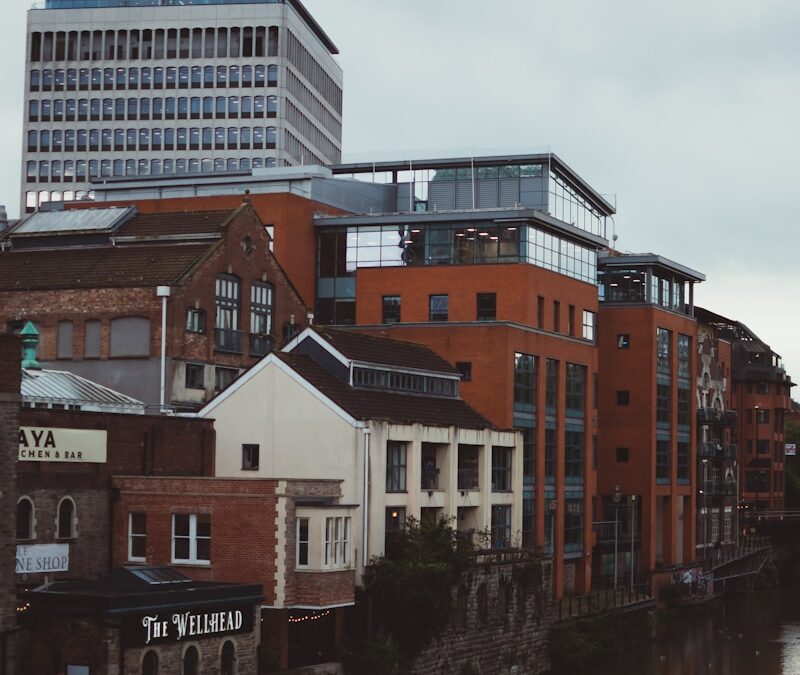Transforming Urban Landscapes with Sustainable Innovations
The Importance of Integrating Green Spaces in Urban Areas
The integration of green spaces and vertical farms in skyscraper cities is essential for promoting biodiversity and supporting local ecosystems. As urbanization accelerates in cities like Riyadh and Dubai, the need for sustainable solutions that enhance urban living while protecting the environment becomes increasingly critical. Green spaces and vertical farms offer a viable solution to this challenge, providing numerous ecological, social, and economic benefits.
In Riyadh, green spaces are being incorporated into urban planning to create a more livable and environmentally friendly city. These green areas, including parks, gardens, and rooftop gardens, serve as vital habitats for various species, promoting biodiversity. Additionally, they help mitigate the urban heat island effect, improve air quality, and provide recreational spaces for residents. The inclusion of green spaces in Riyadh’s skyscrapers not only enhances the aesthetic appeal of the city but also contributes to the overall well-being of its inhabitants.
Dubai, known for its innovative approach to urban development, is also prioritizing the integration of green spaces within its skyscrapers. The city’s urban planners are incorporating green roofs, vertical gardens, and urban forests into high-rise buildings to create sustainable and resilient urban environments. These green spaces act as natural air purifiers, reduce energy consumption by providing natural insulation, and offer residents a connection to nature within the urban landscape. By embracing these green solutions, Dubai is setting a precedent for sustainable urban living.
Vertical Farms: Revolutionizing Urban Agriculture
Vertical farms are revolutionizing urban agriculture by enabling the production of fresh, locally grown food within skyscraper cities. In Riyadh, vertical farming is being adopted to address food security and reduce the environmental impact of traditional agriculture. These farms use advanced technologies, such as hydroponics and aeroponics, to grow crops in stacked layers, maximizing space and resource efficiency. Vertical farms in Riyadh’s high-rise buildings provide fresh produce to local communities, reducing the need for long-distance transportation and minimizing carbon emissions.
Dubai is also at the forefront of vertical farming innovation. The city’s vertical farms are equipped with state-of-the-art technology that monitors and optimizes growing conditions, ensuring high yields and quality produce. These farms not only supply fresh vegetables and herbs to urban dwellers but also contribute to the city’s sustainability goals by conserving water, reducing waste, and lowering the carbon footprint. Dubai’s commitment to vertical farming demonstrates the potential of integrating agriculture into urban settings, transforming how cities produce and consume food.
The combination of green spaces and vertical farms in skyscraper cities offers a holistic approach to urban sustainability. By creating self-sustaining ecosystems within urban environments, cities like Riyadh and Dubai can enhance biodiversity, improve food security, and promote environmental stewardship. These initiatives reflect a forward-thinking approach to urban planning that prioritizes the health and well-being of both residents and the planet.
Promoting Biodiversity and Supporting Local Ecosystems
The integration of green spaces and vertical farms in skyscraper cities plays a crucial role in promoting biodiversity and supporting local ecosystems. In Riyadh, green roofs and vertical gardens provide habitats for various plant and animal species, creating urban biodiversity hotspots. These green spaces attract pollinators, such as bees and butterflies, which are essential for the health of ecosystems. Additionally, they offer a refuge for birds and small mammals, contributing to the ecological balance within the city.
Dubai’s approach to integrating green spaces and vertical farms also emphasizes the importance of biodiversity. The city’s urban planners design green areas to include a variety of native plants, which support local wildlife and contribute to the resilience of ecosystems. Vertical farms in Dubai are designed to be biodiversity-friendly, incorporating diverse plant species that enhance the ecological value of urban agriculture. By fostering biodiversity, these initiatives help build resilient urban ecosystems that can adapt to environmental changes.
The benefits of promoting biodiversity extend beyond ecological health. Green spaces and vertical farms provide educational opportunities for residents, raising awareness about the importance of biodiversity and sustainable living. In Riyadh and Dubai, community programs and workshops are organized to engage residents in urban gardening and farming activities. These initiatives not only educate the public but also foster a sense of community and environmental responsibility.
Conclusion: The Future of Sustainable Urban Development
The integration of green spaces and vertical farms in skyscraper cities is transforming urban landscapes, promoting biodiversity, and supporting local ecosystems. As cities like Riyadh and Dubai continue to grow, their commitment to sustainable urban development sets a benchmark for other cities worldwide. By embracing green technologies and innovative urban agriculture, these cities are creating livable, resilient, and environmentally friendly urban environments.
The future of sustainable urban development lies in the continued integration of green spaces and vertical farms. As these technologies evolve, they will provide even more sophisticated solutions for enhancing urban biodiversity and sustainability. The leadership of Riyadh and Dubai in this domain highlights the potential of green technologies to transform urban living and address global environmental challenges.
In conclusion, the integration of green spaces and vertical farms in skyscraper cities represents a significant step towards creating sustainable and resilient urban environments. By prioritizing biodiversity and supporting local ecosystems, cities like Riyadh and Dubai are leading the way in sustainable urban development. Their efforts serve as a model for other cities to follow, demonstrating the transformative power of green technologies in shaping the future of urban living.
#GreenSpaces #VerticalFarms #SkyscraperCities #Biodiversity #Ecosystems #AITechnology #ModernTechnology #BusinessSuccess #LeadershipSkills #ProjectManagement #Riyadh #Dubai

